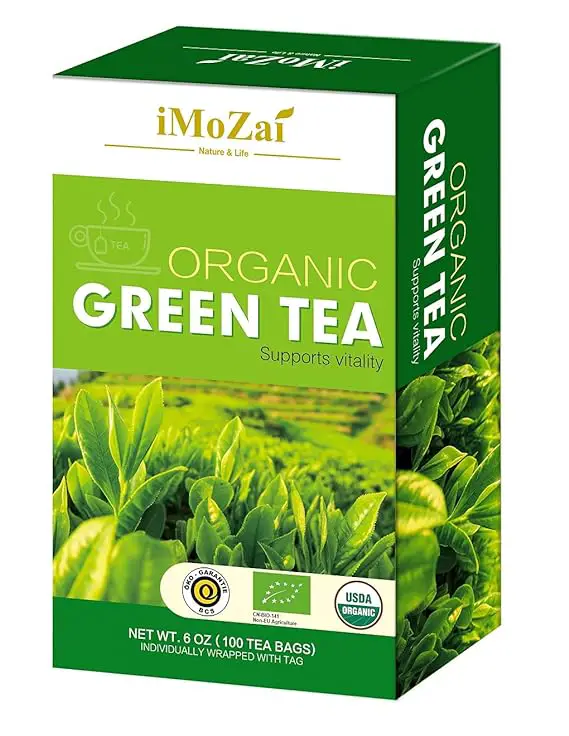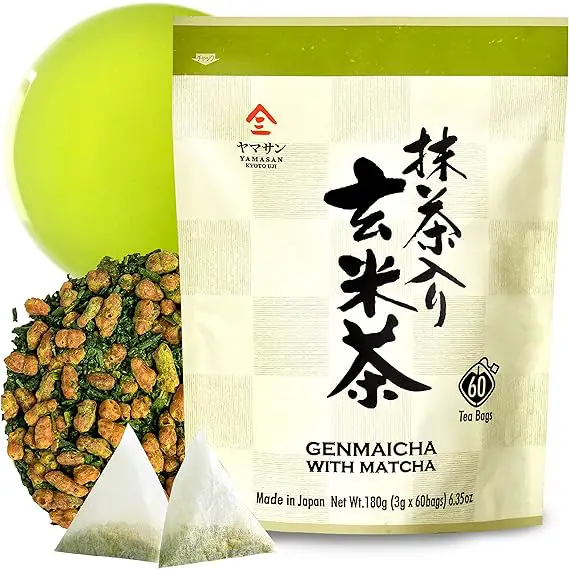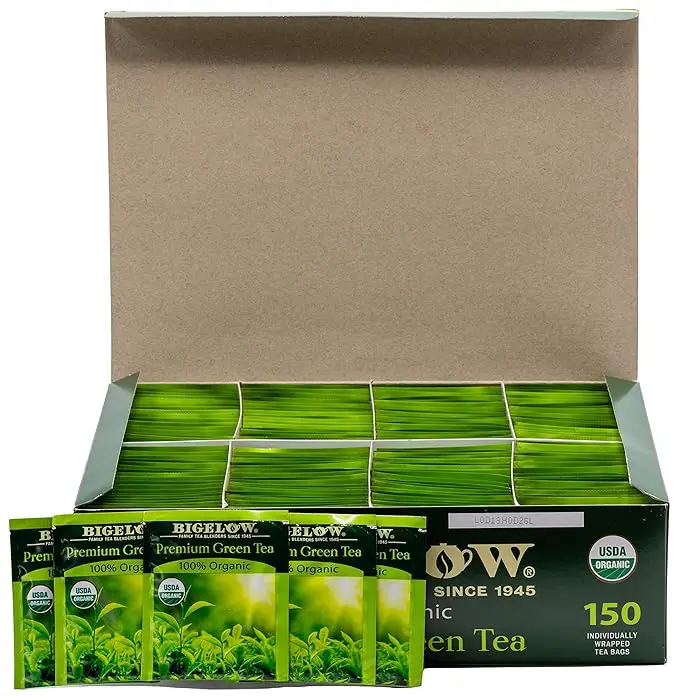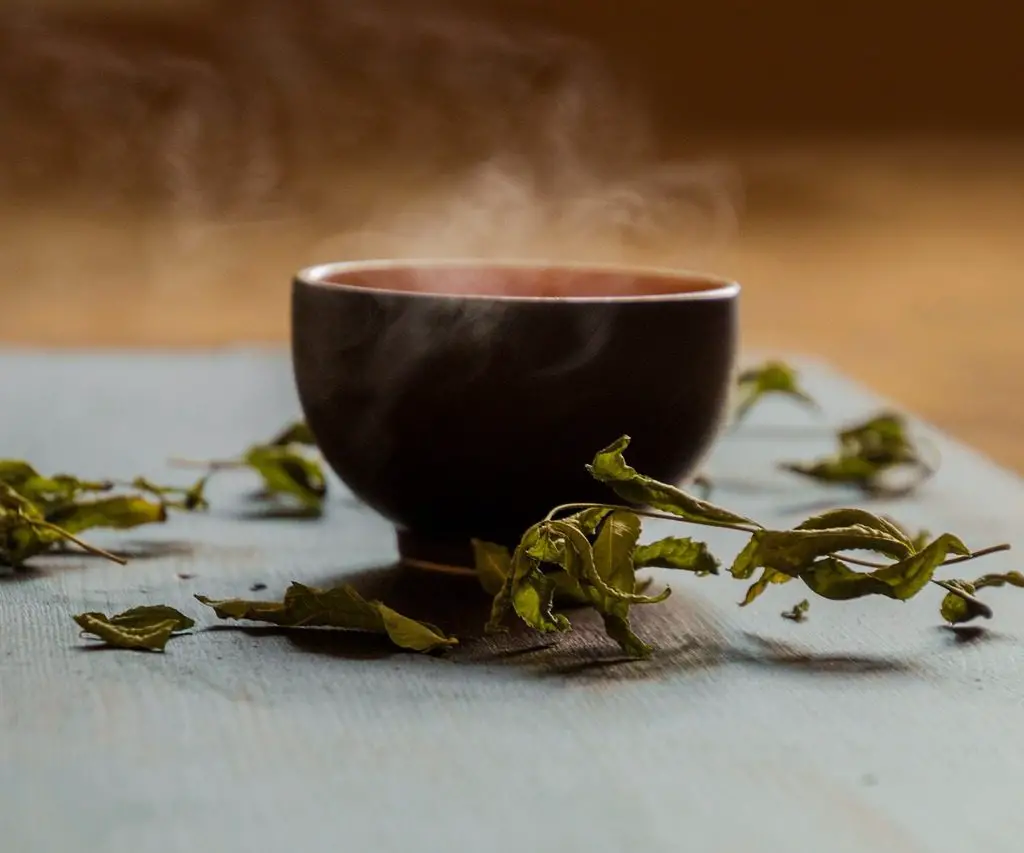Key Highlights
- Best Green tea is rich in antioxidants that offer numerous health benefits, including protecting bone, brain, and heart health.
- The catechins and caffeine in green tea may help alleviate anxiety and stress, enhance memory, and reduce high blood pressure and cholesterol.
- Green tea may support mental clarity and focus, boost metabolism, aid in weight loss, and reduce the risk of heart disease.
- It contains essential vitamins, minerals, and antioxidants, improving overall health and well-being.
- Understanding the brewing process and proper storage methods will ensure green tea’s best quality and freshness.
Introduction
Green tea has been consumed for centuries and is known for its numerous health benefits. It is obtained from the oxidized leaves of the Camellia sinensis plant and contains a high concentration of antioxidants and beneficial polyphenols. These compounds have been found to positively affect various aspects of health, including cognitive function, weight management, and heart health.
In this blog, we will explore the key highlights and benefits of green tea, factors that determine its quality, top-rated green tea brands, and the nutritional content of green tea. We will also delve into the brewing process and proper storage methods to ensure green tea’s best quality and freshness. Additionally, we will address green tea’s potential risks and side effects and answer some frequently asked questions about its consumption. By the end of this blog, you will understand why green tea is considered the key to a refreshed and energized you and how you can incorporate it into your daily routine for optimal health benefits.
Discovering the Best Green Tea
Best green tea is derived from the leaves of the Camellia sinensis plant and is available in various forms, such as beverages, dietary supplements, and topical ointments. The key to finding the best green tea lies in understanding the extraction process and the quality of the tea leaves. Green tea extract is obtained by steeping the tea leaves in hot water or using a solvent to extract the active compounds. This extract is rich in catechins, a polyphenol that is a powerful antioxidant. The specific type of green tea extract used can vary, with some brands using a higher concentration of catechins for enhanced benefits.
Camellia sinensis is the plant species that produces green tea, and the quality of the tea leaves can vary depending on factors such as the region where they are grown, the time of harvest, and the processing methods employed. The tea leaves used in green tea production undergo minimal oxidation, preserving their natural properties and ensuring a high concentration of antioxidants. Choosing green tea products that use high-quality tea leaves and have undergone rigorous testing for purity and potency is essential. Look for reputable brands that prioritize sourcing organic and sustainably grown tea leaves. Reading customer reviews and consulting with healthcare professionals can also help you select the best green tea products.

Bigelow Premium 100-Percent Organic Green Tea

Imozai Organic Green Tea Bags 100 Count Individually Wrapped
Factors Determining the Quality of Green Tea
The quality of green tea is determined by several factors, including the tea polyphenols present in the leaves, the specific variety of Camellia sinensis plants, and the processing methods used. Tea polyphenols are a group of compounds that contribute to the health benefits of green tea. These polyphenols, such as catechins, are antioxidants that help protect the body against free radicals and oxidative stress. The concentration of tea polyphenols in green tea can vary depending on the variety of the Camellia sinensis plant and the specific tea leaves used.
The specific variety of Camellia sinensis plants also plays a role in the quality of green tea. Different varieties have distinct flavour profiles and levels of tea polyphenols. For example, matcha green tea is made from shade-grown tea leaves and has a higher concentration of catechins. The processing methods used to produce green tea can also affect its quality. The tea leaves are typically steamed or pan-fried to halt oxidation and preserve their natural compounds. The duration and temperature of the processing can influence the flavour and aroma of the resulting green tea. When choosing green tea, look for products containing high concentrations of tea polyphenols made from high-quality Camellia sinensis leaves. Consider the specific variety and processing methods to ensure you get the best-quality green tea.
Top-Rated Green Tea Brands
With the growing popularity of green tea consumption, numerous brands are available. However, not all green tea products are created equal. Here are some top-rated green tea brands known for their quality and commitment to providing the best green tea products.
- Imozai Organic Green Tea: Imozai Organic Green Tea is known for sourcing high-quality tea leaves from organic and sustainable farms. They offer a wide range of green tea products, including loose-leaf tea, tea bags, and matcha powder. Their products are carefully processed to preserve the natural antioxidants and flavours of the tea leaves.
-
Genmaicha green tea : Genmaicha Green Tea Company specializes in premium green tea products from select gardens. They focus on sustainable farming practices and ensure their tea leaves undergo minimal processing to retain their natural compounds.
-
Bigelow Green Tea: Bigelow Green Tea is a well-established brand that offers a variety of green tea products, including flavour green teas and tea bags. They are known for their commitment to quality and provide detailed information about the sourcing and processing their tea leaves.
When choosing a green tea brand, consider factors such as the source of the tea leaves, the processing methods used, and customer reviews. Opt for brands prioritising sustainability, organic farming practices, and transparency in their production processes.

Genmaicha green tea with Matcha

Republic of Tea Lean Green Super green Tea
Health Benefits of the Best Green Tea
Green tea offers numerous health benefits, making it an excellent choice for refreshing and energizing your body and mind. The antioxidants in green tea can protect your heart, reduce the risk of heart disease, and lower blood pressure. Green tea also promotes mental clarity and focus, enhances memory, and reduces the risk of cognitive decline. Additionally, it boosts metabolism, aids in weight loss, and helps maintain a healthy body weight. Regular consumption of green tea can also reduce the risk of certain types of cancer and promote overall well-being.
Promotes Mental Clarity and Focus
Green tea contains L-theanine, an amino acid that promotes relaxation and reduces anxiety and stress. It also enhances brain function, including memory and cognitive abilities. Green tea’s high concentration of L-theanine compared to other teas can positively impact mental clarity and focus. Studies have shown that supplementing with L-theanine can reduce anxiety and stress and improve sleep quality. However, it’s essential to consult a healthcare provider before starting supplements containing high amounts of L-theanine.
Boosts Metabolism and Aids in Weight Loss
Green tea has been shown to boost metabolism and aid in weight loss. The catechins in green tea can increase fat oxidation and thermogenesis, which helps the body burn more calories. Green tea also contains caffeine, a natural stimulant that can further enhance metabolism and fat burning. Regular consumption of green tea, a balanced diet, and regular exercise can support weight loss efforts and help maintain a healthy body weight.
Reduces Risk of Heart Diseases
Regular consumption of green tea can reduce the risk of heart diseases, including heart attacks and strokes. The antioxidants in green tea help improve heart health by reducing inflammation and oxidative stress, which can lead to heart disease. Green tea also helps lower blood pressure and cholesterol levels, risk factors for heart disease. Studies have shown that moderate green tea consumption can significantly reduce the risk of developing heart diseases and improve overall cardiovascular health.
Nutritional Content of Green Tea
Green tea is refreshing and packed with essential vitamins and minerals that support overall health. It is rich in antioxidants, including catechins and flavonoids, with numerous health benefits. Green tea also contains vitamins such as vitamin C, E, and B vitamins and minerals like magnesium, potassium, and selenium. These nutrients contribute to the overall nutritional content of green tea and provide additional health benefits.

Essential Vitamins and Minerals in Green Tea
Green tea contains various essential vitamins and minerals that benefit overall health. It is a good source of antioxidants, including catechins and flavonoids, which help protect against free radicals and oxidative stress. Green tea also contains vitamins such as vitamin C, which boosts the immune system, and vitamin E, which has anti-ageing effects. Additionally, green tea provides minerals like magnesium, potassium, and selenium, which support various bodily functions and promote overall well-being.
Antioxidants and Their Benefits
Antioxidants are compounds in green tea that help protect cells from damage caused by free radicals. Free radicals are unstable molecules that can lead to oxidative stress and contribute to the development of chronic diseases. The antioxidants in green tea neutralize free radicals and help reduce inflammation. Regular consumption of green tea and its antioxidants can benefit overall health, lowering the risk of chronic diseases and promoting longevity.
Understanding the Brewing Process
To make the perfect cup of green tea, it’s essential to understand the brewing process. The quality and taste of green tea depend on factors such as the water temperature, brewing duration, and the amount of tea leaves used. These factors can impact the flavour, aroma, and overall experience of enjoying green tea. By following the proper brewing process, you can ensure that you extract the maximum benefits and flavour from your green tea.
Ideal Water Temperature and Brewing Duration
The ideal water temperature and brewing duration for green tea can vary depending on the type of green tea and personal preference. Generally, the water temperature for brewing green tea should be around 175°F to 185°F (80°C to 85°C). Steeping green tea for 2 to 3 minutes is recommended to extract the desired flavours and antioxidants. However, it’s important to note that different types of green tea may require specific brewing parameters, so it’s always helpful to refer to the instructions provided by the tea manufacturer.
The Art of Steeping Green Tea
Steeping is an essential part of the green tea brewing process. Steeping refers to infusing the tea leaves in hot water to extract their flavours and nutrients. Use high-quality loose green tea leaves or tea bags to steep green tea. Place the desired amount of green tea in a teapot or cup and pour hot water over it. Allow the tea leaves to steep for the recommended time, and strain the tea before serving. The art of steeping green tea is finding the perfect balance between water temperature, brewing time, and personal preference.
Proper Storage Methods for Green Tea
Proper storage is crucial for maintaining the freshness and quality of green tea. Exposure to air, light, heat, and moisture can degrade the flavours and antioxidants in green tea leaves. To preserve the freshness of green tea, it’s essential to store it in airtight containers away from direct sunlight and heat sources. Avoid storing green tea near strong odours or spices that can transfer their flavours to the tea. Additionally, consuming green tea within a reasonable period is recommended to ensure optimal taste and quality.
Factors Affecting Green Tea Freshness
Several factors can affect the freshness of green tea. Exposure to air and moisture can cause the tea leaves to absorb unwanted odours and lose their flavour over time. Light and heat can also degrade the antioxidants and flavours of green tea. It’s essential to store green tea in airtight containers in cool, dark places to minimize exposure to these factors. Additionally, purchasing high-quality green tea from reputable sources and consuming it within a reasonable period can help maintain its freshness and quality.
Storage Tips to Preserve Green Tea Quality
Following specific storage tips is essential to preserve the quality of green tea. Keep green tea in airtight containers to minimize exposure to air and moisture. Store the containers in cool, dark places away from sunlight and heat sources. Avoid storing green tea near strong odours or spices that can transfer their flavours to the tea. Consuming green tea within a reasonable period is also advisable to ensure optimal taste and quality.
Potential Risks and Side Effects of Green Tea
While green tea offers numerous health benefits, knowing its potential risks and side effects is essential. Green tea contains caffeine, which can cause side effects such as anxiety, insomnia, and rapid heart rate, especially in individuals who are sensitive to caffeine. In rare cases, consuming excessive amounts of green tea or green tea extracts can also lead to liver problems. Additionally, green tea may interact with certain medications, so it’s essential to consult a healthcare provider if you take any medications.
Caffeine Content and Its Implications
Green tea contains caffeine, although the amount can vary depending on the type of green tea and brewing parameters. The caffeine content in green tea ranges from 30 to 50 milligrams per 8-ounce cup. While moderate caffeine consumption is generally safe for most individuals, excessive caffeine intake can cause side effects such as increased heart rate, high blood pressure, anxiety, and insomnia. It’s essential to be mindful of your caffeine intake and consider factors such as your sensitivity to caffeine and any existing medical conditions.
Interaction with Other Medications
Green tea may interact with certain medications, including those used to treat heart problems and high blood pressure. The catechins and caffeine in green tea can affect the absorption and metabolism of certain drugs, potentially altering their effectiveness. It’s essential to consult with a healthcare provider or pharmacist if you take any medications and consider incorporating green tea into your routine. They can guide potential interactions and help you make informed decisions about your health.
Conclusion
To conclude, green tea is a powerhouse of health benefits, making it an essential addition to your daily routine. With its ability to promote mental clarity and focus, boost metabolism, and reduce the risk of heart disease, green tea truly has the potential to refresh and energize you. When choosing the best green tea, consider quality, taste, and the brand’s reputation. Look for green teas rich in essential vitamins, minerals, and antioxidants for maximum health benefits. To brew the perfect cup of green tea, consider the ideal water temperature and brewing duration. Proper storage is also crucial to maintaining your green tea’s freshness and quality.
While green tea offers numerous advantages, it’s essential to be aware of potential risks and side effects, such as caffeine content and drug interactions. Incorporate green tea into your daily routine and experience its rejuvenating effects on your mind and body. Cheers to a refreshed and energized you!
